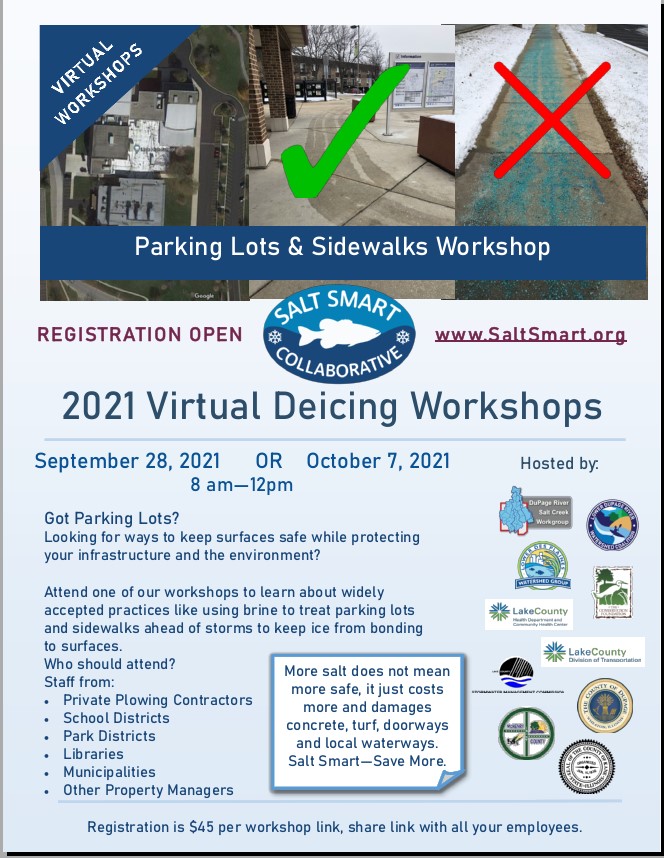 You may know that road salt and other chemicals used to melt ice and snow contaminate our streams, lakes, and groundwater. But do you know what you can do to reduce this contamination? Find out in one of two upcoming virtual workshops offered by the Salt Smart Collaborative.
You may know that road salt and other chemicals used to melt ice and snow contaminate our streams, lakes, and groundwater. But do you know what you can do to reduce this contamination? Find out in one of two upcoming virtual workshops offered by the Salt Smart Collaborative.
In the Salt Smart Parking Lots and Sidewalks virtual workshop, you will learn how to do your part to help the environment as well as minimize salt damage to your infrastructure and guests' vehicles. The program is open to any business, public entity, house of worship, property manager, or other individual who maintains parking lots and driveways. It will be held Tuesday, Sept. 28, and Thursday, Oct. 7, from 8 am to noon. Registration costs $45, and the webinar link can be shared with staff members. Register here.
Why cut down on road salt?
Once road salt dissolves, there is no practical way to remove the chlorides from water resources, according to the Northwest Water Planning Alliance. The chloride then harms native wildlife and plants. At high levels, it can be toxic to aquatic wildlife, such as fish, amphibians, and aquatic invertebrates. Excessive sodium in soils can stunt plant growth, damage vegetation, or kill plants. Salt-tolerant invasive plant species often replace vulnerable native plants, leading to a decrease in native plant diversity.
Road salt also can damage bridges, parking garages, railroads, and other public transportation infrastructures. It is especially corrosive to steel reinforcement in concrete, and can accelerate corrosion of metal pipes, structures, and vehicles.
In a 2020 Ashland Times-Gazette article, Xianming Shi, a professor of civil and environmental engineering at Washington State University, said the country spends $5 billion a year on infrastructure damages caused by road salt.
Sign up for the Salt Smart workshop to learn how to keep surfaces safe while protecting infrastructure and the environment. Register here.